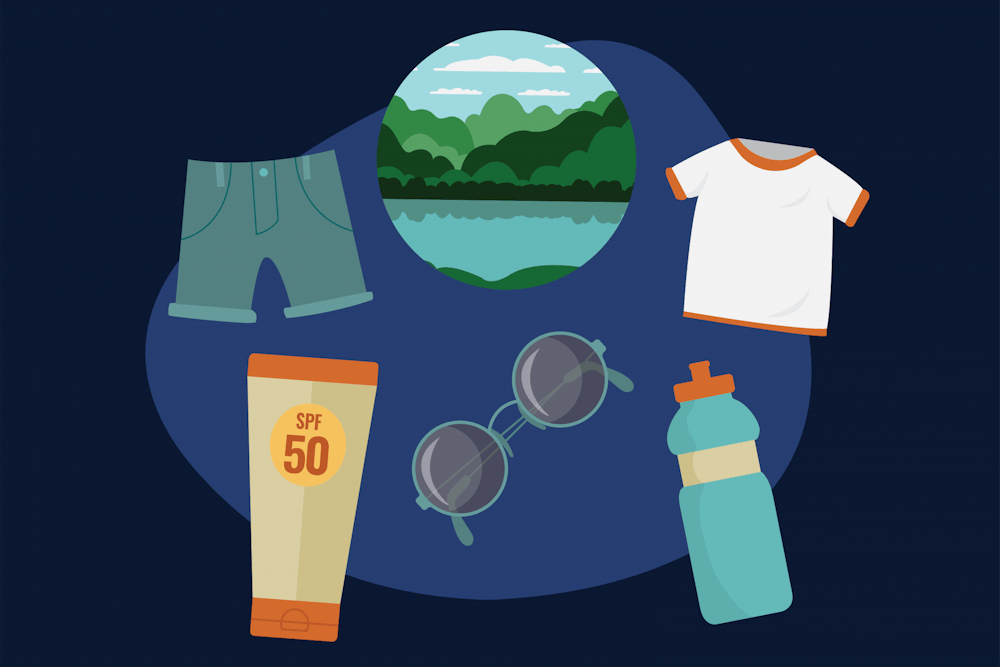The persistent heat in Columbia is not going away anytime soon. We should be prepared and avoid the sun damage and heat illnesses that these weather conditions can bring us.
There are many types of heat illnesses, according to the CDC. For example, students can suffer from heat cramps, in which the arms or legs cramp during heavy exercise in hot environments or heat exhaustion when your body overheats. Heat stroke, which occurs when the body cannot control its temperature and cool down on its own, is also a significant heat illness.
Symptoms you should look out for are dizziness, nauseous, headaches, rising body temperature and losing consciousness, according to Dawn Emerson, a clinical assistant professor in the Arnold School of Public Health.
These symptoms could mean that somebody is having a heat stroke. Heat stroke is the most serious heat illness and requires immediate medical attention, according to Hopkins Medicine.
"If they start to feel nauseous or they start to get lightheaded, that is your body saying that it is getting overheated," Emerson said. "Listening to your body is really, really important.”
Staying hydrated and wearing short sleeves and shorts are some ways to avoid heat illnesses, according to Susan Yeargin, an associate professor of athletic training in the department of exercise science.
Kirstin Dow, a professor in the department of geography, is the lead investigator of the Carolinas Integrated Sciences and Assessments. One of the organization’s missions is to prevent and spread awareness about heat illnesses.
“As you move around the city, it's clear there are many, many what we call microclimates," Dow said. "Where the temperature's hotter or cooler depending on whether there's lots of asphalt, or direct sun, or a good breeze or plenty of trees.”
One of the members of the organization helped develop a tool to forecast the wet bulb globe temperature, which measures the heat stress of the body based on these microclimates.
This tool helps understand the most optimal time and place you can go for a run or walk on campus. You can access it on the University of North Carolina at Chapel Hill's website.
There are many places around Columbia that you can go to help cool you down, such as the Horseshoe, Lake Murray and the Congaree National Park.
It is also important to protect your skin when you're out in the sun. Sun damage can cause many problems, such as burns, wrinkling or even cancer.
“The core goal is to prevent sunburns completely," according to Anthony Alberg, the chair of epidemiology and biostatistics at the Arnold Public School of Health.
Some of the best ways you can protect your skin are wearing protective clothing, sunglasses with UV protection and reapplying sunscreen 30 or higher SPF every two hours, Alberg said.
Although the sun is hitting us hard this year, we can still have fun while being protected. Knowing these facts and tips can help you have a great start to the semester without the sun taking a toll on you.

